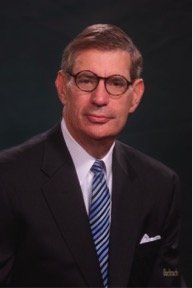Honorable Dennis Curran
The Disappearance of Dr. Parkman: Blood & Ivy at the Harvard Medical School
The 1849 murder of Dr. George Parkman in Boston stands as one of the most—if not the most—sensational trials of the nineteenth century.
This case has it all: a grisly murder, a dismembered corpse, a wealthy victim, a respected suspect, a questionable lead witness for the prosecution, and unusual court proceedings.
Nearly 60,000 spectators were ushered through the Boston courtroom in 10-minute intervals. An all-out media blitz ensued, with journalists traveling from Europe to Boston to cover the trial. Ultimately, the case spawned books, documentaries and even an iPhone app.
The forensics of the case—one of the first trials to allow scientific evidence as testimony, and the first to allow dental evidence—will be explored along with a brief history of the ”Spunkers” Club, a secret group of body-snatchers at the Harvard Medical School.
We are going to examine the lawyers, judges, the problems with the case and its oddities.
Among the many fascinating elements to this story are: first, the number of Harvard men involved in the case; and second, the rapidly changing social climate during which the trial takes place.
The trial is also legally historic. This case established the legal standard of “proof beyond a reasonable doubt”—a requirement that has since been adopted by just about every state in the nation. And it all started in Boston—with this case.

Honorable Dennis J. Curran, (judgedenniscurran.com) Massachusetts Superior Court Justice (ret.) served as a Massachusetts trial judge for 15 years. He received four statewide awards for his deep commitment and belief in the justice system and dedication to the law. For the past three years he has taught a well-acclaimed course entitled “Great Trials That Changed History: A Judge’s Perspective” at the Wellesley-Weston Lifetime Learning program. He is a Fellow of the Massachusetts Historical Society and a member of the Board of Directors of the Lincoln Forum. He was recently featured on a history panel broadcast on C-SPAN 2.
